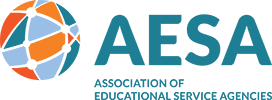Refresher: In June, AASA led an amicus brief in a case in the 5th circuit, responding to the Molak v FCC case in the fifth circuit in support of the FCC. The Molak case asserts the FCC is overstepping its authority in its recent move to allow E-Rate dollars to be used for Wi-Fi on buses. In July, the 5th Circuit Court handed down a decision in a separate case, Consumers Research et. al vs. the FCC, where the central question was if 47 U.S.C. § 254 violates the nondelegation doctrine by imposing no limit on the Federal Communications Commission’s power to raise revenue for the Universal Service Fund. The 5th circuit decision in this case found the funding mechanism for the Universal Service Fund to be unconstitutional.
Update: On the heels of the decision, the court granted a stay until September 30, allowing USF programs to continue uninterrupted and to give the FCC time to file its appeal to the Supreme Court. The FCC did file its appeal to the Supreme Court (as of October 1). We have not yet heard from the Court if they will grant cert (agree to hear the case). The stay remains in place until the Court makes a decision on cert. If they grant cert and decide to hear the case, then the USF programs (including E-Rate) carry on uninterrupted until a decision is handed down. If they do NOT decide to hear the case, it gets immediately more complicated. We will need to see what compliance with the 5th circuit decision looks like: is it applied only in the 5th circuit, disrupting USF access for TX, LA and MS? Is it applied more broadly? Regardless of court action, we will also be pursuing potential legislative fixes, whereby Congress could include language in a broader package clarifying their intent/ reshaping the 5th circuit decision.
Super Quick Update: We are waiting to see if the Supreme Court will hear the case (We are optimistic). In the meantime, all USF programs—including E-Rate—will operate as normal. There is no call to action at this time, but we will have a full advocacy effort related to protecting the E-Rate and universal service programs. If members want to do anything, they can/should continue to make sure their Congressional delegation knows what E-Rate is, why it is important, how districts use it, and what it would look like/mean for their district if the program went away.
